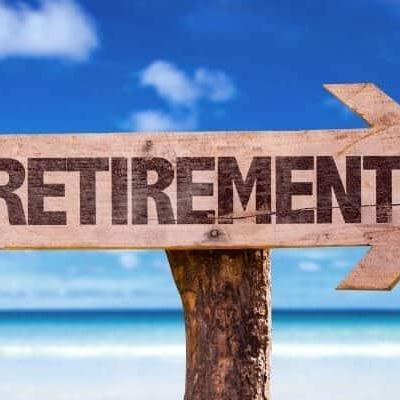Saving for Retirement Now May Lead to Tax Credits in 2022 and Beyond

As the time for filing taxes draws near, the Internal Revenue Service (IRS) has issued updated recommendations that might benefit consumers’ wallets both now and in the future. Just as people in the United States are beginning to prepare to file their tax returns, you need to know the Saver’s Credit, also known as the Retirement Savings Contribution Credit.
The program aims to assist those with low and moderate incomes who contribute to retirement programs such as 401(k) plans, Individual Retirement Agreements (IRA), or other programs. In addition, individuals who contribute to Achieving a Better Life Experience (ABLE) accounts, designated for people living with impairments, are also eligible for the credit.
The Saver’s Credit can either assist individuals in getting more significant tax returns or help them owe less money to the IRS. This year, the credit might be worth up to $1,000 (or $2,000 for couples), although the exact amount is still being determined to be awarded.
Submitting an Application for the Saver’s Credit
The IRS considers a consumer’s income, marital status, and the amount of money they’ve put into retirement plans or ABLE accounts when determining whether or not they qualify for the Saver’s Credit.
On the other hand, the agency has indicated that due to inflation, the income limitations are more significant than they have been in the past and that this trend will likely continue for the following year. Therefore, next is a list of the conditions that must be met to qualify for the Saver’s Credit:
- Single individuals or married couples filing separately with incomes of up to $34,000 in 2022 and $36,500 in 2023 are eligible for this tax credit.
- Couples who are married and file their taxes as a married couple have combined salaries of up to $68,000 in 2022 or $73,000 in 2023
- Those who are the primary breadwinners in their households and earn up to $51,000 in 2022 or $54,750 in 2023
Also, certain restrictions are placed on the kind of people qualified to apply for the Saver’s Credit. These are the following:
- You are ineligible for the Saver’s Credit if you are a student, defined as someone enrolled in school full-time for at least five months of the calendar year.
- Saver’s Credit applications can only be submitted by taxpayers who are 18 years old.
- The Saver’s Credit cannot be claimed by any individual who is claimed as a dependent on another person’s tax return.
According to the information provided by the IRA, the average return from the Saver’s Credit in the tax year 2020 was around $186 for each eligible return. The almost 9.5 million tax returns submitted across the country claimed nearly $2 billion.
It is also crucial to note that the credits are likely lower for customers who have withdrawn money from an ABLE account or retirement plan between 2019 and the official filing date for 2022 taxes.
Getting Ready for the Upcoming Tax Season
It is not too late for customers with qualified retirement plans or accounts for individuals with disabilities able to claim the Saver’s Credit for the 2022 tax year.
Taxpayers can contribute to standard or Roth individual retirement accounts (IRAs) until the formal reporting date, April 18, 2023. In addition, any new retirement plans established between now and the deadline for the Saver’s Credit for 2022 will also be eligible for the credit.
On the other hand, in the case of typical retirement plans offered by employers, they must make all contributions before the end of the year. This includes 401(k) plans, 403(b) plans for workers of public schools and tax-exempt organizations, Governmental 457 programs for employees of state and local governments, and Thrift Savings Plans for employees of the federal government.
The IRS advises workers to discuss their 2023 contributions with their employers as soon as possible. Then, stay in touch to get the whole Saver’s Credit list of qualified retirement accounts.
Contact Information:
Email: [email protected]
Phone: 7705402211
Bio:
Mack Hales has spent the past 4 decades helping clients prepare for retirement and manage their finances successfully. He also works with strategies that help clients put away much more money for their retirement than they could in an IRA or even a 401k. We involve the client’s CPA and/or their tax attorney to be sure the programs meet the proper tax codes.
Mack works with Federal Employees to help them establish the right path before and after retirement. The goal is to help the client retire worry-free with as much tax-free income as possible and no worries about money at risk of market loss during retirement.
Mack has resided in Gainesville, GA since 1983, so this is considered home. Mack is married to his wife of 51 years, has two boys and five grandchildren.
Popular posts

FEHB Premium Hikes Have...
Key Takeaways FEHB premiums...

CSRS Retirement Plans Are...
Key Takeaways CSRS remains...
Free Retirement Benefits Analysis
Federal Retirement benefits are complex. Not having all of the right answers can cost you thousands of dollars a year in lost retirement income. Don’t risk going it alone. Request your complimentary benefit analysis today. Get more from your benefits.
I want more


